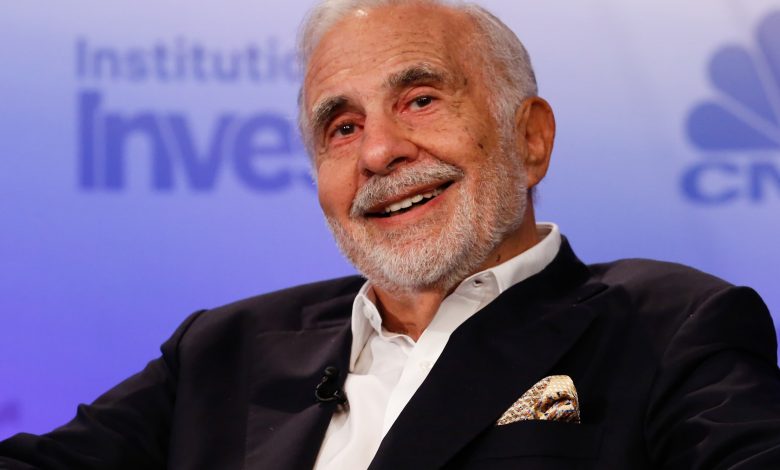Carl Icahn: A Biography of the Iconic Investor and Corporate Raider

Carl Celian Icahn, born on February 16, 1936, in Queens, New York, is a towering figure in the world of finance. Known for his aggressive investment tactics and influential presence in corporate boardrooms, Icahn has made a significant impact as an investor, entrepreneur, and philanthropist.
Early Life and Education
Icahn grew up in a middle-class Jewish family in Far Rockaway, Queens. His father was a cantor and later a substitute teacher, while his mother was a schoolteacher. Icahn demonstrated academic prowess early on, leading him to attend Princeton University. He graduated in 1957 with a degree in philosophy, which he later described as excellent training for the world of finance due to its emphasis on logic and reasoning. After Princeton, Icahn enrolled at the New York University School of Medicine but left after two years to join the Army.
Entry into Finance
Carl Icahn began his career on Wall Street in 1961 as a stockbroker. In 1968, he founded Icahn & Co., a securities firm that specialized in risk arbitrage and options trading. His early experiences provided him with a deep understanding of market mechanics and corporate structures, laying the groundwork for his future as an activist investor.
Rise as a Corporate Raider
Icahn’s reputation as a corporate raider emerged in the 1980s, a decade marked by aggressive takeovers and leveraged buyouts. His investment strategy often involved acquiring significant stakes in companies and then using his influence to push for changes that would increase shareholder value, such as cost-cutting measures, asset sales, or strategic reorientations. Icahn’s confrontational style frequently put him at odds with company management, earning him a formidable reputation.
One of Icahn’s most famous early battles was his hostile takeover of Trans World Airlines (TWA) in 1985. He successfully acquired the struggling airline and implemented extensive cost-cutting measures, although his tenure was controversial and marked by significant asset stripping.
Investment Philosophy and Style
Icahn’s investment philosophy centers on the belief that many companies are inefficiently managed, and by shaking up their management and operations, he can unlock substantial value for shareholders. He has often been labeled a “corporate raider” or “activist investor,” but Icahn prefers to be seen as a champion of shareholder rights. His approach typically involves buying large blocks of undervalued stocks, gaining representation on the board of directors, and pushing for strategic changes to improve performance.
Notable Investments and Campaigns
Over the years, Icahn has been involved in numerous high-profile investment campaigns. Some of his notable targets include:
- Apple Inc.: Icahn acquired a significant stake in Apple and publicly pressured the company to increase its share buyback program, arguing that the stock was undervalued.
- Netflix: In 2012, Icahn invested in Netflix when its stock was struggling. His involvement and belief in the company’s potential contributed to a significant rise in its stock price.
- Dell: During Michael Dell’s attempt to take Dell Inc. private, Icahn opposed the move, arguing that it undervalued the company. His campaign led to a higher buyout price for shareholders.
Philanthropy and Personal Life
Beyond his business endeavors, Carl Icahn is also known for his philanthropy. He established the Icahn Foundation, which supports education, medical research, and other charitable causes. Icahn has made significant donations to institutions such as Princeton University and Mount Sinai Hospital in New York, which was renamed the Icahn School of Medicine at Mount Sinai in recognition of his contributions.
Icahn is also known for his straightforward and often brash personality, which has made him a colorful and sometimes controversial figure in the business world. He is married to Gail Golden and has two children, Brett and Michelle, both of whom are involved in finance.
Legacy and Impact
Carl Icahn’s influence on corporate America is profound. His aggressive investment style and willingness to challenge established management practices have reshaped the landscape of shareholder activism. Icahn’s legacy is one of relentless pursuit of shareholder value, often at the expense of the status quo. His career serves as a testament to the power of individual investors to effect change within even the largest corporations.
In conclusion, Carl Icahn is a pioneering figure whose career spans over six decades of transformative influence in finance and corporate governance. His bold investment strategies, coupled with his philanthropic efforts, ensure that his impact will be felt for generations to come.



